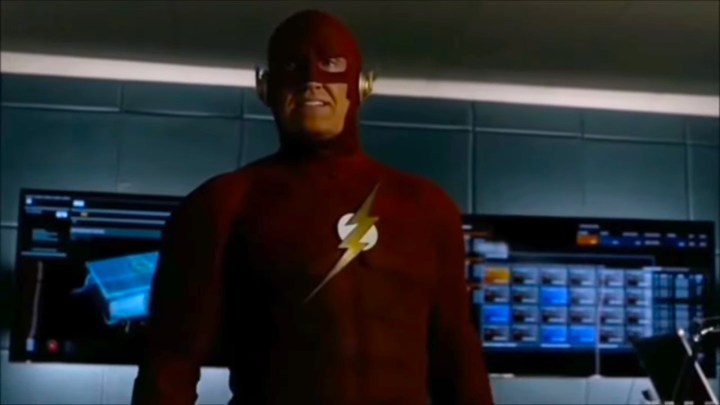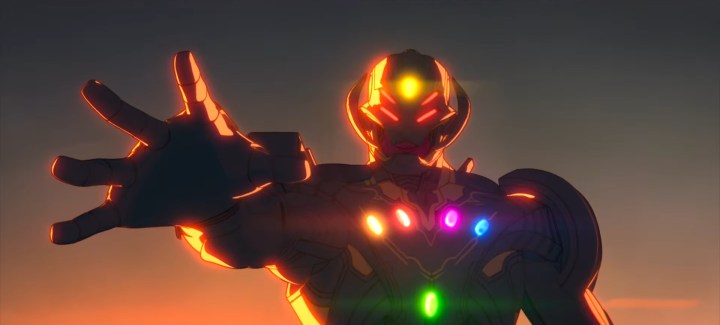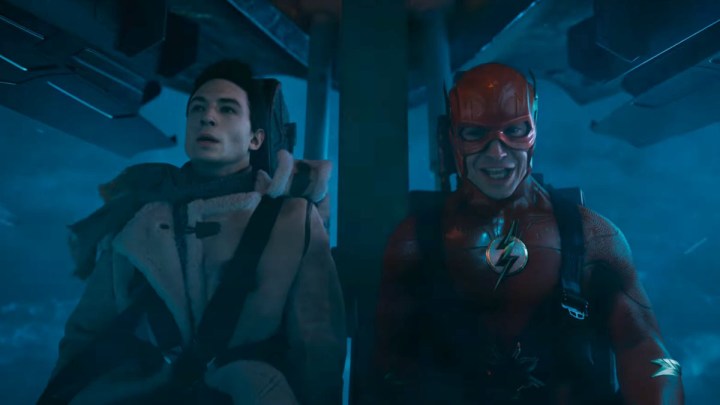With The Flash finally in theaters and Spider-Man: Across the Spider-Verse still dominating multiplexes nationwide, it’s safe to claim that we’re in an era of multiverses. Everything from high-quality animated entertainment to Oscar heavyweights like Everything Everywhere All at Once now embrace the concept, and that’s thanks in no small part to two of the biggest franchises in the world right now. Marvel and DC have both recently taken the plunge into the world of multiversal storytelling, which makes this a perfect time to consider which multiverse is ultimately the more fruitful terrain to explore.
Although the idea of multiverses is quite new to the filmed versions of these stories, the idea of parallel universes has existed in the comics for decades. Over those years, both universes have had their share of cataclysmic multiverse events, but only one universe can ultimately reign supreme over this particular corner of comic book lore. With all that in mind, let’s dive in and figure out which multiverse is actually better and why.
Universe diversity: DC

One of the most fun things about the idea of the multiverse is the notion that you can explore a wide array of different worlds. That’s what has made Spider-Man: Across the Spider-Verse such an enormous success both critically and commercially. On that score, DC comes out on top, in part because it has more interesting notions of what the multiverse could mean, at least in the comics.
Generally speaking, the Marvel multiverse features a bunch of alternate earths that are in some way worse than the earth we’re all most familiar with. DC, by contrast, shows us other universes that range all the way from dystopian to much better than the one that we spend most of our time in.
Ease of understanding: Marvel

The idea of the multiverse is inherently fairly confusing, and one of the main strengths of Marvel is that they have kept their storytelling to a relatively small number of universes. As a result, Marvel has been able to better hook viewers into its world more generally, and kept more of them following the thread in movies such as Doctor Strange in the Multiverse of Madness and Ant-Man and the Wasp: Quantumania.
DC’s old multiverse was, in contrast, rather confusing. Crisis on Infinite Earths was explicitly created to solve the problem caused by those many universes, and things have been much more streamlined in the more recent past. Even so, Marvel never had to do anything like that. Of course, their multiverse is also less prominent, which definitely helped keep things simpler.
Best story about the multiverse: DC

In terms of the creative peak of multiverse storytelling, it’s hard to argue that it was anything other than Crisis on Infinite Earths. The story may have been necessitated by a confusing string of multiverses, but boy was it great when we finally got it.
Like something like Avengers: Endgame, CoIE used the history of the comics that many fans were familiar with to tell a story that crossed dimensions and timelines with ease. It was a hugely effective reset that ended multiversal storytelling in the DC universe for decades, but it was also a pleasure to read in its own right.
Most creative multiverse storytelling format: Marvel

What If …? was a brilliant way for Marvel to tell relatively brief, low-stakes stories that are set inside of an alternate universe. These stories are about familiar characters in new situations.
They’re flexible storytelling experiments that use the multiverse as a backbone, and they’re so successful that they’ve even been ported over to television. It’s not the kind of huge crossover event that defines many of the most thrilling comic book issues, but What If …? proved that the multiverse could also be a great place for experimentation.
Most long-lasting multiverses: DC

Marvel may have found some interesting ways to leverage their multiverse, but those kinds of one-off issues are ultimately much more slight than what DC is able to do with their parallel universes.
Some of these universes became so dear to regular readers that they had to run concurrently with one another. While it’s undoubtedly true that that got confusing, what’s also true is that they got so confusing because fans held on tightly to so many of them for so long.
Which multiverse is better?

Although both universes have done plenty of interesting things with their universes, DC’s multiverse is more thoroughly integrated into a wide array of stories, and more wide-reaching in its scope. Marvel may have gotten to multiverses first on the big screen, but DC has the stronger canon of multiverse stories to pull from in its immense backlog of comics.
Editors' Recommendations
- 7 Marvel movies that should have ended differently
- The 5 best Marvel comics to read before you watch Ant-Man and the Wasp: Quantumania
- Our 2023 Golden Globes predictions
- Please, don’t let adult cinema die
- Marvel’s Doctor Strange 2 will hit Disney+ later this month



